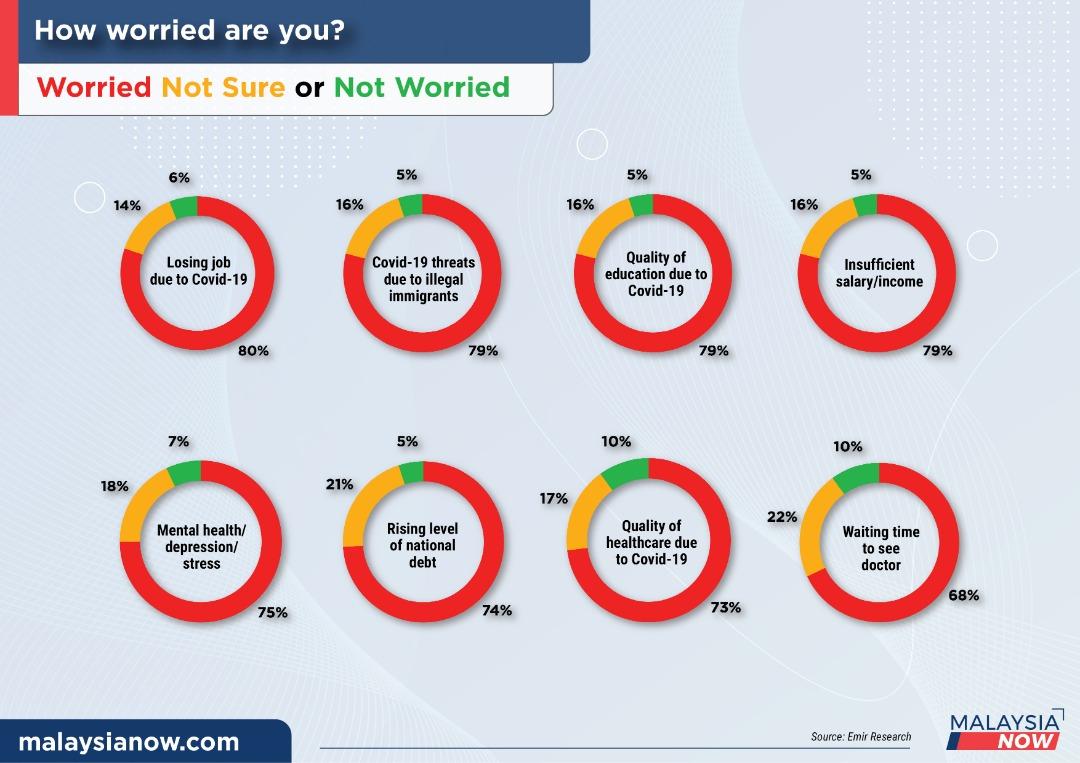Worry fatigue setting in among Malaysians as global pandemic continues?
Survey shows a significant drop in concern about jobs, living costs and other economy-related issues compared to during the third quarter of last year.
A new survey on issues that worry Malaysians in the face of the global Covid-19 pandemic could well mean that “worry fatigue” is taking hold among the population, a research house says.
The National Worry Index survey, conducted as part of Emir Research’s “Pulse from the Ground” series involving 2,000 people from all states, showed a significant drop in worries about jobs, living costs and other economy-related issues, compared to the inaugural poll done in the third quarter of 2020.
“Those in the minimum worry and moderate worry group indicate a significantly lower frequency of agreement to the suggested proposition that life will be better in the future.
“Notably, this was not the case in 3Q20 where we observe the most optimistic respondents were in the minimum worry group, and the overwhelming majority of those in the moderate worry group were ‘unsure’ about their life in future,” Emir Research said on its findings.
The latest survey was conducted in December, before the promulgation of the emergency and the second movement control order (MCO) in January.
The survey gauges response to eight issues affected by the pandemic: jobs, threats of virus from undocumented migrants, education, income, mental health, national debt, healthcare, and more specifically, waiting time to see doctors.
It referred to works on psychology to interpret the findings, and concluded that what is termed “worry fatigue” has emerged due to the prolonged global health crisis.
“Being in the prolonged state of the maximum worry band due to the troika of challenges (pandemic, economic and political conundrum) to the extent of anxiety and perhaps seeing no respite from it in the future, Malaysians appear to exhibit early signs of ‘worry fatigue’ and deploy the strategy of avoidance and coping with the situation,” it said.
In terms of demographics, the survey found that rural dwellers are less worried than those in the urban areas about job matters, cost of living and security.
It also said there has been a lower level of worry among the Malays and Chinese compared to the Indians.
The Indians and the Malays, meanwhile, have shown greater worry about the quality of education and healthcare during the pandemic.
“The Chinese group of respondents has also continued to demonstrate a significantly lower magnitude of worry than the Malays and Bumiputera group, particularly on the economy, jobs and living cost dimensions,” the survey said, adding however that all three ethnic groups “were relatively united in their magnitude of security-related worry”.
Subscribe to our newsletter
To be updated with all the latest news and analyses daily.
